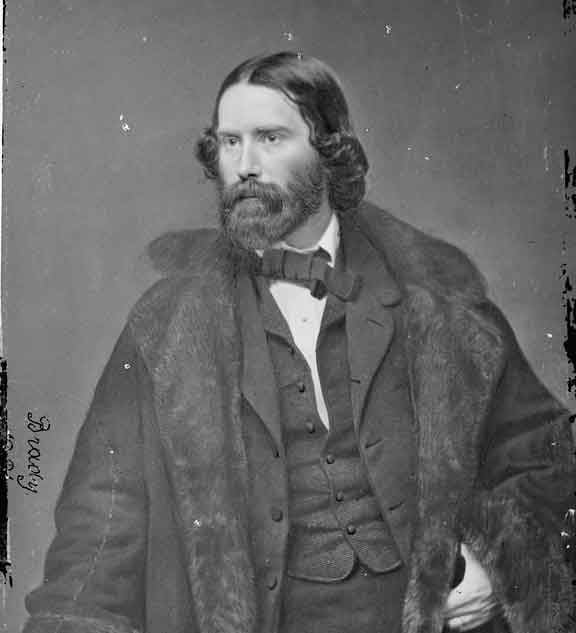Lowell, James

Author, Editor, Educator, and Diplomat
(1819-1891)
James Russell Lowell was born in Cambridge, Massachusetts, on February 22, 1819. Graduating from Harvard in 1938, he took his LLB from the law school there in 1840. In 1841, he published a collection of poems, A Year's Life, and in 1843 began a literary journal, the Pioneer, publishing his own works as well as those of Hawthorn, Whittier, and Poe. Then, in 1845, he published his first critical work, Conversations on Some of the Old Poets.
Under the influenced of his wife, Maria White Lowell, a reformer and poet in her own right, he took up the cause of abolition and contributed a great number of articles on the subject to various periodicals. In 1846, he created in the Boston Courier the first letters from Ezekiel Biglow and poems of Ezekiel's son Hosea, beginning a long popular series of humorous, often satirical, patriotic, and antislavery poems and letters in Yankee dialect. The collected Biglow Papers appeared in 1848, along with the Fable for Critics, a broadly humorous survey of the contemporary literary scene, and The Vision of Sir Launfal.
In 1855, Lowell succeeded Henry Wadsworth Longfellow as professor of modern languages at Harvard. Then, in 1857, Lowell turned to literary criticism, editing the new Atlantic Monthly (1857-61), which published such New England writers as Hawthorne, Whittier, Longfellow, Emerson, and Holmes.
From 1864-1872 Lowell and Charles Eliot Norton jointly edited the North American Review, and Lowell published in its pages a number of critical and biographical articles.
Having supported Rutherford B. Hayes in the Republican national convention, Lowell was appointed U. S. minister to Spain in 1877, and then minister to Great Britain (1880-85). He continued to produce poetry, criticism, and political essays until his death in Cambridge on August 12, 1891.
 >
>